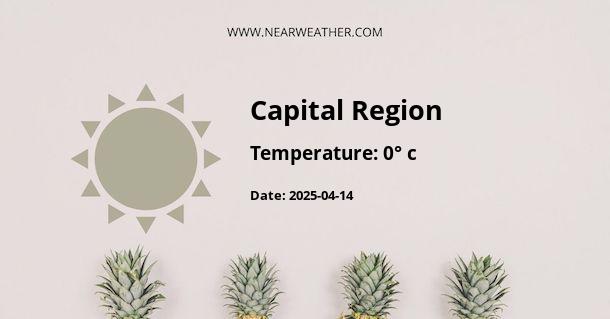Climate and Weather in Höfuðborgarsvæði, Iceland
Höfuðborgarsvæði, commonly known as the Capital Region, is the metropolitan area surrounding Reykjavík, the capital of Iceland. The climate in Höfuðborgarsvæði is influenced by its high-latitude location and proximity to the North Atlantic Ocean. The region experiences a subarctic climate characterized by cool summers and cold, snowy winters. Understanding the weather patterns and climate in Höfuðborgarsvæði is essential for residents and visitors to plan their activities effectively throughout the year.
Temperature and Precipitation
The average annual temperature in Höfuðborgarsvæði hovers around 5°C (41°F). However, the temperature fluctuates significantly throughout the year, with average lows of around -1°C (30°F) in the winter months and average highs of 14°C (57°F) in the summer. The warmest months are typically July and August, while the coldest months are December through February.
Precipitation in the Capital Region is relatively high, with an average annual rainfall of approximately 800-900 millimeters. The precipitation is distributed fairly evenly throughout the year, with slightly more rainfall during the autumn months. Snow is common in the winter, and the region experiences an average of 25-30 snowy days per year.
Sunlight Hours
Due to its high-latitude location, Höfuðborgarsvæði experiences dramatic variations in daylight hours throughout the year. In the summer, the region enjoys almost continuous daylight, with the sun barely setting during the summer solstice. In contrast, the winter months bring very limited daylight, with the sun rising late and setting early, leading to short days.
Wind and Storms
The Capital Region is susceptible to strong winds, especially during the winter months. The combination of wind and low temperatures can result in cold wind chill factors, impacting the perceived temperature and making it feel even colder than the actual temperature. The region can also experience storms, bringing heavy snowfall and strong winds that can disrupt transportation and outdoor activities.
Best Time to Visit
The best time to visit Höfuðborgarsvæði depends on individual preferences. Summer, particularly from June to August, offers relatively milder temperatures, longer daylight hours, and a bustling cultural scene with various events and festivals. However, the winter months provide unique opportunities to experience the mesmerizing Northern Lights and enjoy winter activities such as skiing and snowmobiling.
Conclusion
Understanding the climate and weather patterns in Höfuðborgarsvæði is crucial for residents and visitors to prepare for the varying conditions throughout the year. The region's subarctic climate brings distinct seasonal changes, offering different experiences and activities based on the time of year. Whether embracing the midnight sun in summer or the enchanting winter landscapes, Höfuðborgarsvæði's climate shapes a dynamic environment for all to enjoy.
A - Capital Region's Latitude is 64.166672 & Longitude is -21.666670.
A - Weather in Capital Region is 13° today.
A - Climate Conditions in Capital Region shows overcast clouds today.
A - Humidity in Capital Region is 72% today.
A - Wind speed in Capital Region is 27.83 km/h, flowing at 147° wind direction. today.
